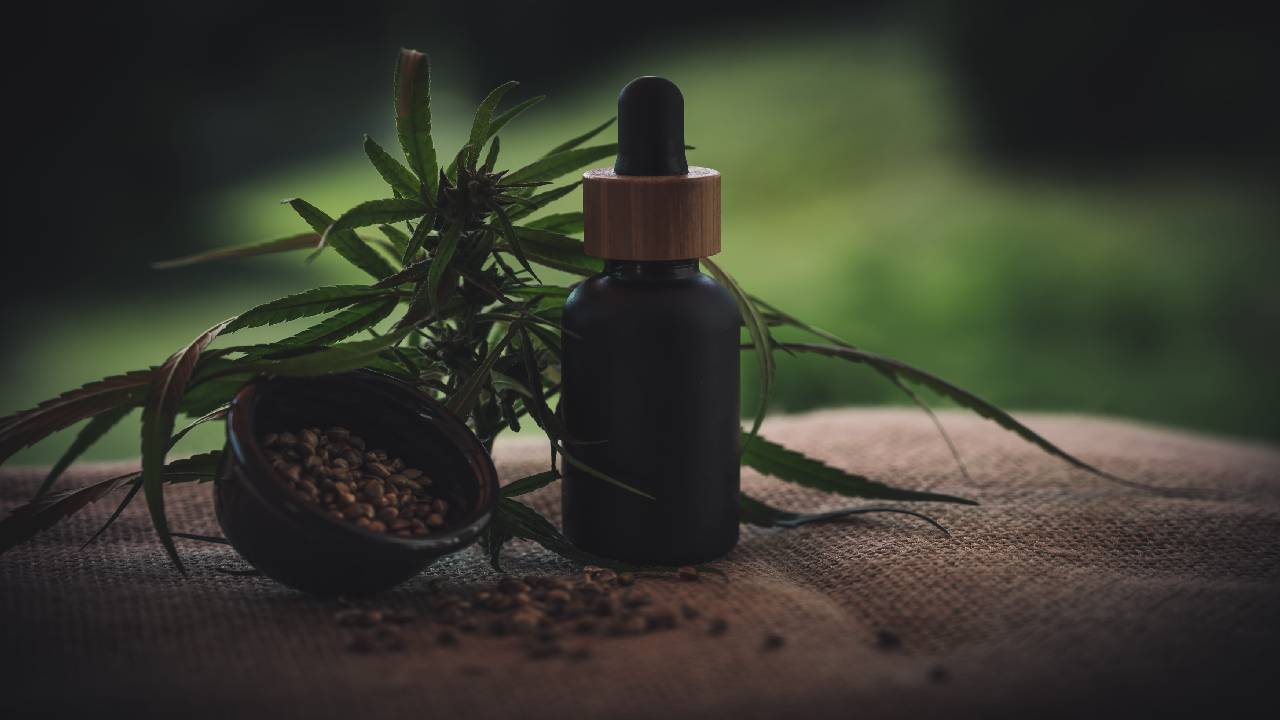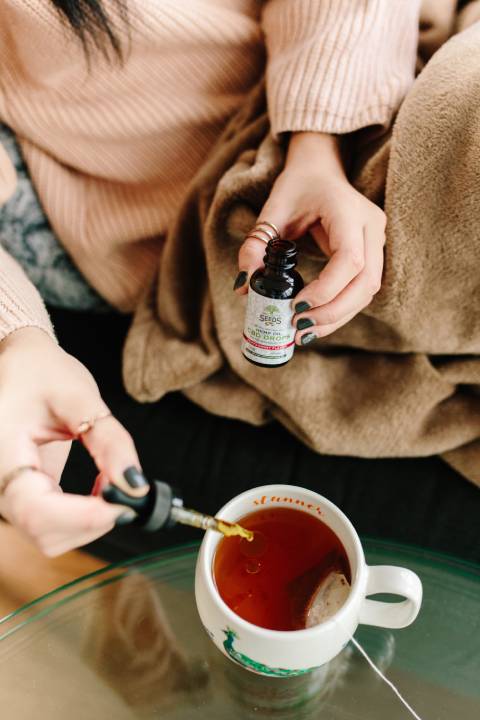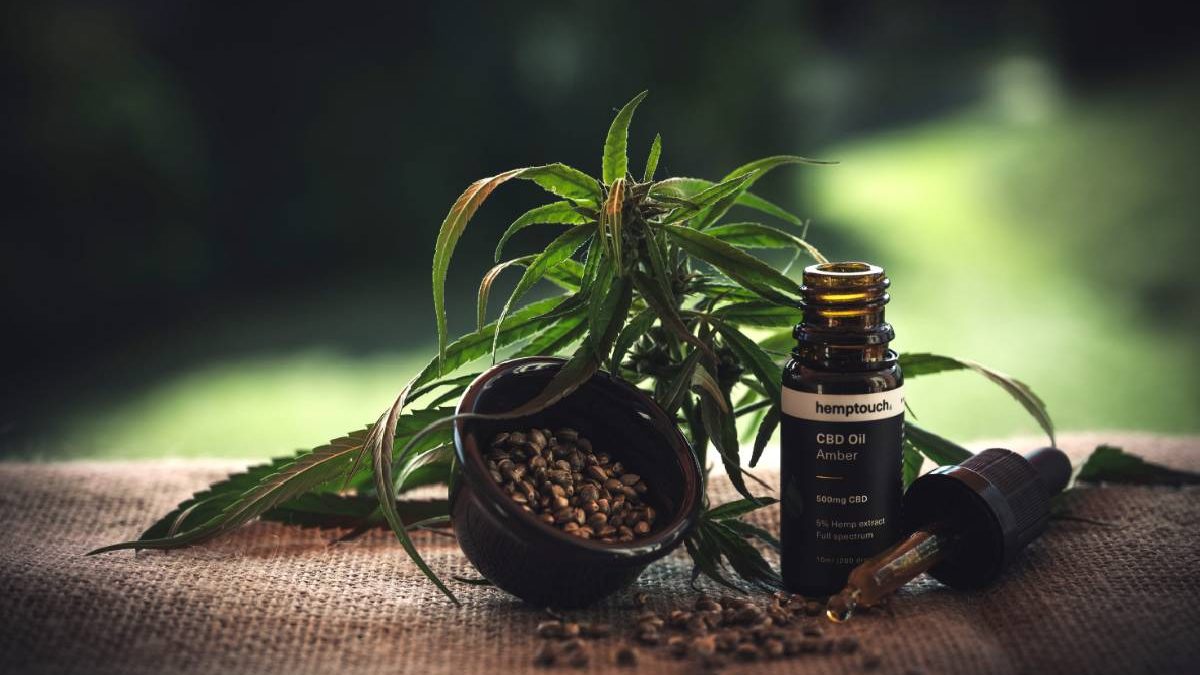If you’re a follower of the cosmetic industry or even healthcare, you will likely have heard of CBD oils. Since the passing of the 2018 US farm bill, which recognized the cannabis plant as agricultural produce, CBD-based supplements have flooded the market. Of these supplements, CBD oil is, by far, the most popular.
While a lot of the research is still being carried out on the properties of CBD, a good number of people have started reporting impressive results from its use. If you’re a natural skeptic, the buzz around CBD oils may seem very premature and suspect. Knowing the basics of what CBD oils are about will help you better understand why a lot of experts are giddy about it. This piece addresses the basic information that an average person needs to know about CBD:
Table of Contents
What Is CBD Oil?

To understand CBD oil, you must first understand what CBD is. CBD, or cannabidiol as it is scientifically known, is one of many compounds that are known as cannabinoids, which are found in the cannabis plant, commonly known as hemp or marijuana.
In recent times, researchers have been investigating the possibilities of using CBD for therapeutic purposes. CBD oils are oils that contain CBD in multiple levels of concentrations. Several kinds of oils are used, but coconut oil is the most popular choice.
One of the more common questions asked about CBD oils is if it is the same as marijuana, especially when considering its effects on the body. The most commonly known compound in the cannabis plant is delta-9 tetrahydrocannabinol (THC), which incidentally is the constituent most active in marijuana. Marijuana contains both THC and CBD compounds. Interestingly these compounds have different very different effects on the body.
The effect of THC is psychoactive; that is, it creates a mind-altering “high” ingested. CBD, on the other hand, acts quite differently. While it does have significant effects on the body, it is not psychoactive like THC. This makes it typically safe for use as it will not affect the user’s mental state. Although the research into the effects of CBD is recent and has few concrete results to show, the early signs suggest that it does have medical benefits.
CBD oils are gotten by extracting CBD from the cannabis plant and then diluting the compound in a carrier oil. As mentioned earlier, oils like coconut or hemp seed oil are the most commonly used.
How Is CBD Oil Made?

As was highlighted earlier, CBD oil is typically extracts from the cannabis plant. However, there are two popular strains of the cannabis plant – Hemp and Marijuana. Hemp refers to strains of the cannabis plant that contain less than 0.3% of THC when dry. Marijuana, on the other hand, contains more than the prescribed 0.3% of THC, sometimes the composition can reach up to 30%. While hemp is legal in the US, marijuana isn’t. In fact, the 2018 US farm bill allows only the sale of hemp-derived CBD in the US.
There are, however, different methods by which the CBD is extracted from the cannabis plant. Because of the unique nature of each product, manufacturers often keep their methods secret. The most common method, however, uses Carbon (IV) Oxide (CO2) as a solvent for the extraction process.
Some processes are structured to produce CBD oil exclusively, while others allow for the extraction of the other cannabinoids in the plants. CBD oil that contains other cannabinoids is often describes as a full spectrum product. Full-spectrum CBD oils are more popular due to the belief that they let people access the full benefits of the cannabis plant.
How Does CBD Work?

CBD oils work to relieve pain, just as marijuana does, but without the mind-altering properties caused by THC. All types of Cannabinoids, CBD inclusive, affect the body by attaching themselves to certain receptors. Research has found that the human body does produce its cannabinoids and has two cannabinoid receptors, called CB1 and CB2 receptors.
The CB1 receptors are found completely in the body, but a large percentage of them are located in the brain. These receptors are responsible for movement and coordination, as well as emotions, pain, and mood. These are the receptors that THC attaches to cause the infamous “high” feeling. The CB2 receptors, however, are located in majorly in the immune system which deals with pain and inflammation.
Previously, researchers thought that CBD attaches itself to these CB2 receptors, but it has been found that CBD does not attach itself to any of the receptors; instead, it directs the body on how to utilize its cannabinoids. CBD is known to be of benefit to health in a number of ways, including anti-inflammatory and natural pain relief properties.
Is CBD Oil Safe?

Most CBD oil products are made from strictly natural ingredients. Since they are naturally produces, they are relatively safe for use. In comparison to other products, they do not have severe side effects, especially from prolonged use.
CBD oil is also not addictive. THC, the psychoactive component of cannabis, also doubles as the addictive component in both marijuana and hemp. With the regulation of THC in CBD oils to as low as 0.3%, the risk of addiction is almost non-existent. In fact, CBD as a substance is currently being test for its efficacy in managing the withdrawal symptoms of opioid addiction, and the early results are promising. The non-addictive property is also one of the reasons that more people are switching to CBD pain relief products over NSAIDs like aspirin and Ibuprofen. NSAIDs have proven to be addictive if used continually.
While continuous use will not likely lead to addiction or any other side effects, overdosing can. Just like any other substance, an overdose of CBD will produce adverse effects. Thankfully, the common side effects associated with CBD overdose are mild. It is important to note that since it is a supplement, the dosage of CBD for one person may not be the same as that for others. In most cases, the dosage is reliant on their weight and the condition it is being used to manage. Here are some of the side effects:
- Nausea
- Diarrhea
- Fatigue
- Changes in appetite
- Dizziness
- Dryness of the mouth
- Drowsiness
In addition to all that, CBD has the potential to interact with other substances, any substance that uses the CYP450 enzyme for its metabolism. This is because CBD inhibits the production of that particular enzyme. The result of this on other drugs that use that enzyme for their metabolism is that they either lose effectiveness or become increasingly toxic. Examples of those drugs include antihistamines, benzodiazepines, immune modulators, and a lot more.
It is imperative for anyone looking to use CBD oil products, especially orally, to talk to a doctor first. Your doctor is best place to provide the proper dosage and advise you on the relationship with any other drugs you might be taking.
How Can You Use CBD Oil?

When purchased in its oil form, there are several ways to use your CBD. Typically, the method of use will be heavily dependent on the kind of nature of the oil you have purchased. Here are a couple of popular methods for using CBD oil:
1. Vaping: The rise of vaping as a healthier alternative to smoking in recent times has coincided with the growing popularity of CBD products. It is one of the most popular ways people make use of CBD oil.
However, people who intend on vaping CBD oil must be careful. The oil used for tinctures is very different from that made for vaping. The CBD products that are design for vaping are usually classified as CBD vaping oils.
2· Swallow or Ingest Directly: By far, the most common way of use, directly ingesting CBD oil concentrates, allows you to access all the benefits of a full spectrum product. Once swallowed, the CBD passes through your digestive system to your liver, where it gets metabolize to release the active ingredients.
Another way to directly ingest CBD oils is to mix the tincture with your meals. Since most CBD oil products are fat-soluble, it is advisable to mix with high-fat foods. It may increase the rate of absorption of the compounds into your body.
3· Topical Application: CBD oil can also be apply topically to great effect. It has been found to have anti-inflammatory and anti-aging effects on the skin. CBD topical products are already a mainstay in major outlets like Walmart.
The really great part is that you can make your own topical CBD solution with just the CBD oil tincture, beeswax, and any other ingredient you’d like to add.
Conclusion
CBD is clearly a compound with great potential for good. It is essential to note that a lot of the research into CBD oil and its health benefits are in the early stage. There are many more things to learn about how CBD works and its advantages for us as users. Make sure to keep abreast of the developments, from the little we already know now; it can only get better.

